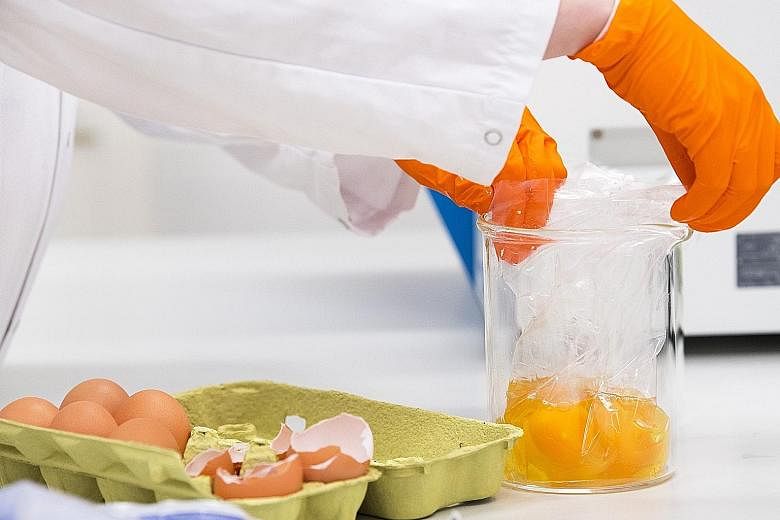BRUSSELS • Millions of eggs believed to be toxic are being recalled from shops and warehouses in Germany, the Netherlands and Belgium, amid fears that contaminated eggs have been sold in the Netherlands for over a year.
Tests of chicken droppings, blood and eggs had shown high levels of the insecticide fipronil, a common ingredient in veterinary products for getting rid of fleas, lice and ticks, but banned from being used to treat animals destined for human consumption, British newspaper The Guardian reported.
Since last week, "about 180 poultry farms have been shuttered due to the presence of the suspect substance fipronil", said the Dutch food authority NVWA.
About a million eggs being transported to Germany have also been recalled from the border with the Netherlands, according to Agence France-Presse (AFP).
In large quantities, fipronil is considered to be "moderately hazardous", according to the World Health Organisation, and can have dangerous effects on the human kidney, liver and thyroid gland.
"Affected farms must have all eggs destroyed by a specialist firm and submit to the NVWA a plan to evacuate the birds' droppings to preserve the environment," a spokesman said.
The NVWA had earlier warned consumers that one batch of eggs "had such elevated levels of fipronil that their consumption would present a serious public health risk". It further advised that eggs from at least 27 other farms should not be eaten by children.
It is believed the substance was introduced by a Dutch business, named Chickfriend, which had been called in to treat red lice, a nasty parasite, in chickens. Poultry can remain contaminated for between six and eight weeks.
The NVWA was still ensuring on Tuesday that the contaminated eggs were being taken off supermarket shelves. It has advised people who may have bought them "not to eat them and to throw them away".
Facing large losses, poultry farmers say they were "cheated" by Chickfriend, which they blame for the incident.
The company appears to have "mixed the illegal substance with a legal one to improve its effectiveness", Mr Erik Hubers from the Dutch agricultural and horticultural association told the NOS broadcaster.
Chickfriend could not be reached for comment on Tuesday, with all calls from AFP going to an answering machine with a message saying the company was closed "for professional reasons".
In Belgium, prosecutors are said to be examining the client list of two companies in Flanders specialising in the production and supply of anti-lice agents, according to The Guardian.
The Netherlands has almost 1,000 lay hen factory farms producing 11 billion eggs a year, of which more than half are exported, mainly to Germany.
One Dutch newspaper, Trouw, suggested that one of the companies may have had clients in Britain, France and Poland, although there is no indication so far that contaminated eggs are being sold in those countries.
The Dutch daily newspaper De Volkskrant reported that the illegal mix had been used on farms in the Netherlands for over a year.
The NVWA told the newspaper it was unclear whether tainted eggs had been sold to customers over that period. "We have no way of checking because the eggs have been eaten," its spokesman said.

